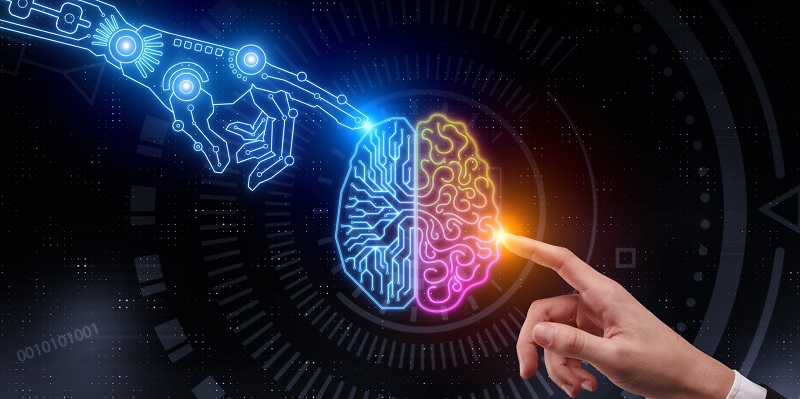
Top 5 AI applications in healthcare
 AI is transforming healthcare with applications that enhance diagnostics, streamline workflows, personalize treatments, and improve patient outcomes. Here are the top five AI applications currently making significant impacts:
AI is transforming healthcare with applications that enhance diagnostics, streamline workflows, personalize treatments, and improve patient outcomes. Here are the top five AI applications currently making significant impacts:
1. Medical Imaging and Diagnostics
AI-driven imaging analysis helps detect conditions like cancer, cardiovascular diseases, and neurological issues more accurately and quickly. By analyzing patterns in X-rays, MRIs, CT scans, and other medical images, AI algorithms can spot abnormalities that might be missed by the human eye. For example:
- Radiology: AI-powered tools can detect early signs of breast cancer in mammograms or lung issues in chest X-rays.
- Pathology: AI assists pathologists by identifying malignant cells in biopsy samples, supporting faster and more accurate cancer diagnosis.
2. Predictive Analytics and Risk Modeling
AI can analyze patient data to predict the likelihood of diseases, enabling proactive care. Predictive analytics help in:
- Risk stratification: AI models assess risk factors to identify patients at high risk for conditions like diabetes, heart disease, or sepsis.
- Readmission reduction: Hospitals use AI to predict which patients might need to be readmitted, allowing for targeted interventions.
- Pandemic prediction: AI models also assist in forecasting and tracking the spread of infectious diseases, as seen during COVID-19.
3. Drug Discovery and Development
AI is accelerating the drug discovery process by analyzing large datasets to identify new compounds, predict molecule behavior, and streamline clinical trials. Applications include:
- Drug repurposing: AI finds existing drugs that could be effective for new conditions, cutting down time and cost in drug development.
- Compound screening: AI algorithms can sift through databases of molecular compounds to identify potential new drugs.
- Clinical trials: AI helps select patients for trials, predict trial outcomes, and analyze data faster, speeding up the process.
4. Personalized Medicine and Treatment Planning
AI enables the development of tailored treatment plans based on genetic, lifestyle, and clinical data. Key applications include:
- Genomic analysis: AI analyzes genetic data to provide insights into an individual’s disease risks and potential treatment responses.
- Treatment recommendations: AI systems suggest personalized treatment plans, such as tailored chemotherapy regimens for cancer patients.
- Chronic disease management: For chronic conditions like diabetes or hypertension, AI can provide recommendations based on individual patient data, improving adherence and outcomes.
5. Virtual Health Assistants and Chatbots
AI-powered virtual assistants and chatbots are used for patient engagement, triage, and mental health support. Examples include:
- Symptom checkers: Chatbots assess symptoms and guide patients to the appropriate level of care, reducing unnecessary ER visits.
- Mental health support: AI-based platforms like Woebot provide real-time mental health support through cognitive-behavioral therapy (CBT).
- Patient engagement: Virtual assistants remind patients to take medications, track symptoms, or manage appointments, improving patient adherence and satisfaction.
These applications showcase the versatility of AI in healthcare, enhancing diagnostic accuracy, treatment personalization, and patient care delivery, ultimately leading to more effective healthcare systems and improved patient outcomes.
মোবাইল: +৮৮০১৭১৭৯৬০০৯৭
ইমেইল: news@dailycomillanews.com
www.dailycomillanews.com